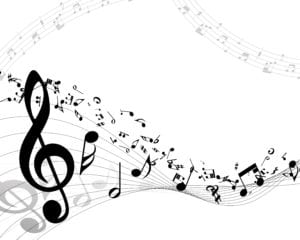Music has played an important role in people’s lives since ancient times. It can lift spirits and influence mood, it can be used as a form of communication and it can even assist in the healing process. Music therapy has shown to be helpful for individuals with brain injuries, mental health disorders, physical disabilities and substance abuse disorders.
The benefits of music therapy have led an increasing number of drug and alcohol rehab centers to include the therapy in their treatment programs.
What is Music Therapy?
When used in a therapeutic setting, music can have a powerful effect on people recovering from addiction, impacting their emotions and thoughts. In a music therapy session, a client might recreate a certain piece of music or improvise some music.
Sometimes the client and therapist will listen to music together and talk about how the music affected them. Drumming is a popular form of music therapy that helps participants convey their feelings and boost their emotional energy levels.
No musical skill or experience is necessary to participate in music therapy; the emphasis is on self-expression and opening the lines of communication.
Benefits of Music Therapy
Music’s ability to influence mood is beneficial for everyone, but the benefits of music therapy are especially important for people suffering from addiction. Many addiction treatment experts recommend meditation for individuals in recovery, but meditating can be a difficult task for a person who is newly sober. In these cases, music can help induce a clear and relaxed state of mind.
Listening to music is a powerful relaxation technique and stress reliever, but it’s not the only way that music can benefit a recovering individual. Creating and performing music offers clients a creative outlet and a safe way to express their feelings. It also helps newly sober individuals stay busy and focus on something other than drugs or alcohol.
Enhancing the Treatment Experience
Participating in group therapy can be intimidating for some individuals, and music can help clients take a more active role in their therapy sessions. Music therapy in a group setting allows participants to build skills that will enhance their treatment and recovery experience by:
- Developing a sense of respect for other group members and their roles
- Improving participation in group activities
- Learning how to nurture and accept nurturing from others
- Developing non-verbal communication skills
While advocates of music therapy have long been able to offer anecdotal evidence of the technique’s effectiveness, scientific research is now able to substantiate some of these claims. According to one study, music therapy was proven to increase the level of client engagement in group therapy.
Music Therapy and Addiction Treatment
Music therapy can play a valuable role in addiction treatment. Combined with counseling and behavioral modification, music therapy can help clients manage the physical and emotional challenges of recovery.











